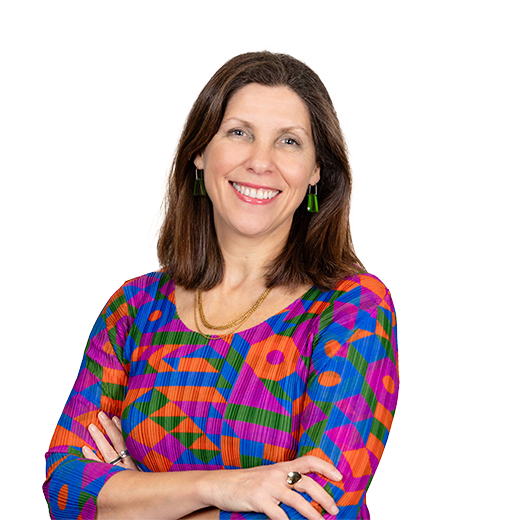I am a Professor of Architecture at the Manchester School of Architecture (MSA), where I am leading the new research by design studio Non Standard Habitats. I am a registered architect in Spain since 2003, and in Portugal since 2023. I was trained as an architect at Escuela Técnica Superior de Arquitectura de Madrid (2003), hold an MDesS in Design and Technology from Harvard University Graduate School of Design (2008) and conducted my PhD studies in Madrid and the Massachusetts Institute of Technology (2008-14).
Prior to joining the MSA, I was a Reader in Architecture at the Liverpool School of Architecture (2010-24), where I held different academic roles, including Research Lead/REF Co-ordinator (2022-24) and MArch Programme Director (2019-2022). I led design studios and lecture-based courses on research methods and environmental design at both undergraduate and post-graduate level, and I also supervised numerous postgraduate dissertations. I founded the Experimental Material Ecologies Research Group (EMERG), and within it created two laboratories: ECALab (Environmental Ceramics for Architecture Laboratory) in 2011, and HouseLab in 2020.
My research lies at the interface between sustainable architectural design and material technology with an emphasis on the impact of innovative environments on building occupants (comfort, perception and wellbeing). My work is guided by two interconnected approaches. As a historian and theorist, I am interested in documenting and analysing the invention and implementation of historic pioneering sustainable materials and technologies for architecture. My publications on Le Corbusier’s Mur Neutralisant, and my book Sustainable Retrofits (Routledge 2018) follow this direction. I am currently continuing research on materials, energy and heritage to develop a new book, Glass and Light (Lund Humphries), focused on the evolution of the glass façade in its relationship with daylight control technology, from mid 19th century to present-day. The idea is to present a new reading of how glass as an architectural material played a key role in the definition and advancement of design, but also evidence how modernist architects, developed progressive thinking in this direction through design, prototypes and built examples, that have influenced our contemporary practice.
As the founding director of the ECAlab and HouseLab, my research developed a new methodology to optimise the integration of ecological performance in the design process by bridging various fields, from advanced digital prototyping, environmental simulation and building tectonics to craft, psychophysics and inclusive design. Within ECAlab I investigated energy efficient, low resource intensive architectural surfaces producing 85 innovative designs and 46 building prototypes. ECAlab has collaborated with the Spanish cluster of ceramic manufacturers for 10 years, as well as with local industrial partners, such as Granby Workshop and a network of international professional practices of architects and ceramicists. This work has been showcased in three major events in collaboration with Royal Institute of British Architects (RIBA, 2017-18), TATE (2018) and The Building Centre (2019-20). The film Moulding Futures illustrates the works, methodologies and concepts of ECAlab and was nominated for best film in the category “Reshaping the Economy” of the 2018 tve Global Sustainability Film Awards at BAFTA, London. With the creation of HouseLab, I wanted to expand my research scope to engage in the production of buildings and policy by developing neglected areas of inclusive, human-centred design. A recent consultancy project on the design of a sensory pavilion for neurodiverse children for Elm Tree School (Lancashire) and my new project Designing for Neurodiversity works in this direction.
Through ECAlab and HouseLab, I am interested in the creation of platforms to enable opportunities for innovation by connecting professionals, industry and research, but also to improve communication between areas by developing tools that support architectural education. My book Elements of Sustainable Architecture (Routledge 2019) and the online database D-LITE (Database of Light-Interacting Technologies for Envelopes) were developed as tools to better integrate sustainable thinking in buildings from an architect standpoint.
www.house-lab.org
www.ecalab.org
www.d-lite.org
PhD Supervision
Current PhD students
- Yousef Khoja. Shaping Minds through Spaces: Rethinking School Architecture in Saudi Arabia (2026-2030)
- Tongyao Lin. Adaptive Therapeutic Environment for People with ASD Based on a Neurofeedback Cyber-Physical Architectural System (2023-2026)
Completed PhD Projects and Post-doctoral Mentorships
- Dr Yiting Cheah. Designing for Neurodiversity (2025-2026)
- Dr Juan Rivera Soriano. The Sustainable Modernity (2021-2025)
- Dr Khawlah Tarim. Defining a Sustainable Biophilic Design Framework in a Hot and Dry Climate (Desert Environment) (2021-2025)
- Dr Mehmet Arif Aktoğ. Energy Optimisation during AEC Conceptual Design (2019-2024)
- Dr Chitraj Bissoonauth. Toolmaking in Parametric Façade Design (2019-2024)
- Dr Lewis Jones. Recycled Ceramics: Innovations in the Production of Sustainable Architectural Surfaces (2024)
- Dr Deyan Quan. A Parametric Form Language for Fibre Reinforced Concrete Prefabricated Façade Elements Using 3D Printed Formwork (2024)
- Dr Bekir Tekkin. A New Framework for Biophilic Design Based on Post-Occupancy Evaluations in Therapeutic Facilities (2023)
- Dr Tavs Jorgensen. Smart Tooling for Ceramic Profile Extrusion: New Approaches to Industrially Focused Interdisciplinary Practice Based Research (2019-2021)
- Dr Ali Al-Graiti. Evaluating the environmental performance of nanomaterials in architecture (2021)
- Sureepan Supansomboon. Classroom Façade Design for Daylighting in a Tropical Hot-Humid Climate (2019)
- Dr Mai Khalfan. Assessment of the Passivhaus Standard for a Hot Climate: a case study of Qatar (2016)
I welcome inquiries from prospective students who wish to pursue a PhD in Sustainable Architecture and Environmental Design, particularly projects relating to:
- History and Theory of Materials, Technology and Construction in Architecture
- Sustainable Environmental Design
- Specialist Environments for Health and Wellbeing
- Experimental Design and Advanced Materials and Technologies
-
Building Envelopes


